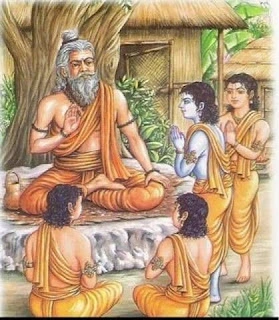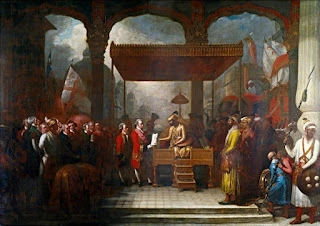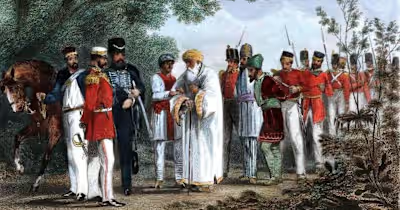The Evolution of Guru-Shishya Parampara: Impact and Adaptation …
Like this project
Posted Aug 1, 2023
The Evolution of Guru-Shishya Parampara: Impact and Adaptation After the Indian Education Act Introduction The Guru-Shishya Parampara, a...
Likes
0
Views
739
Tags
The Evolution of Guru-Shishya Parampara: Impact and Adaptation After the Indian Education Act
Introduction
The Guru-Shishya Parampara, an ancient tradition deeply rooted in Indian culture, has been a cornerstone of education and knowledge dissemination for centuries. This sacred teacher-disciple relationship was founded on the principles of oral transmission, personalized instruction, and spiritual guidance. However, with the advent of the Indian Education Act, the landscape of education underwent a transformation, leading to a gradual decline in the traditional Guru-Shishya system. This article explores the impact of the Indian Education Act on the Guru-Shishya Parampara and how the revered tradition adapted to the modern educational framework.
Historical Context of Guru-Shishya Parampara
The Guru-Shishya Parampara has its origins in ancient India, where knowledge was passed down from generation to generation through close bonds between teachers and students. This traditional setup was prevalent in various domains, including Vedic studies, martial arts, classical arts, and philosophy. The Guru, often revered as a spiritual guide, was responsible for not only imparting knowledge but also shaping the character and morality of the Shishya (disciple).

The Indian Education Act and Its Implications
In the late 19th and early 20th centuries, British colonial rulers introduced the Indian Education Act, aiming to overhaul the traditional education system. The Act laid the foundation for a centralized, standardized, and formalized approach to education, with an emphasis on English language and Western subjects.

The introduction of this new education system had several implications for the Guru-Shishya Parampara:
a. Institutionalization of Education: The Act led to the establishment of formal schools and colleges, undermining the decentralized and personalized nature of the Guru-Shishya tradition.
b. Shift in Language and Curriculum: English became the medium of instruction, replacing the vernacular languages that were traditionally used in the Guru-Shishya setup. Additionally, the curriculum was aligned with Western knowledge, leading to a decline in the teaching of traditional arts and spiritual sciences.
c. Rise of Certification and Degrees: The Act introduced a system of examinations and certifications, emphasizing academic qualifications over traditional wisdom and experiential learning.
Adaptation of Guru-Shishya Parampara
While the Indian Education Act had a significant impact on traditional education, the Guru-Shishya Parampara did not entirely disappear. Instead, it adapted to coexist with the new educational framework:
a. Gurukul Reformation: Some Gurukuls (traditional schools) adapted their teaching methodologies to incorporate modern subjects while preserving their core values and spiritual teachings.
b. Fusion of Traditional and Modern: In some instances, modern educational institutions embraced aspects of the Guru-Shishya Parampara, such as promoting teacher-student relationships and mentorship programs.
c. Cultural Revival: Over the years, there has been a resurgence of interest in traditional arts and spiritual sciences, leading to the revival of certain aspects of the Guru-Shishya Parampara.
Conclusion
The Indian Education Act marked a pivotal moment in the history of Indian education, leading to a transformation in the traditional Guru-Shishya Parampara. While the formal education system gained prominence, the ancient tradition of Guru-Shishya endured through adaptation and preservation efforts. As India continues to evolve, a harmonious blend of modern education and traditional wisdom can pave the way for a holistic and enriched learning experience for generations to come.




